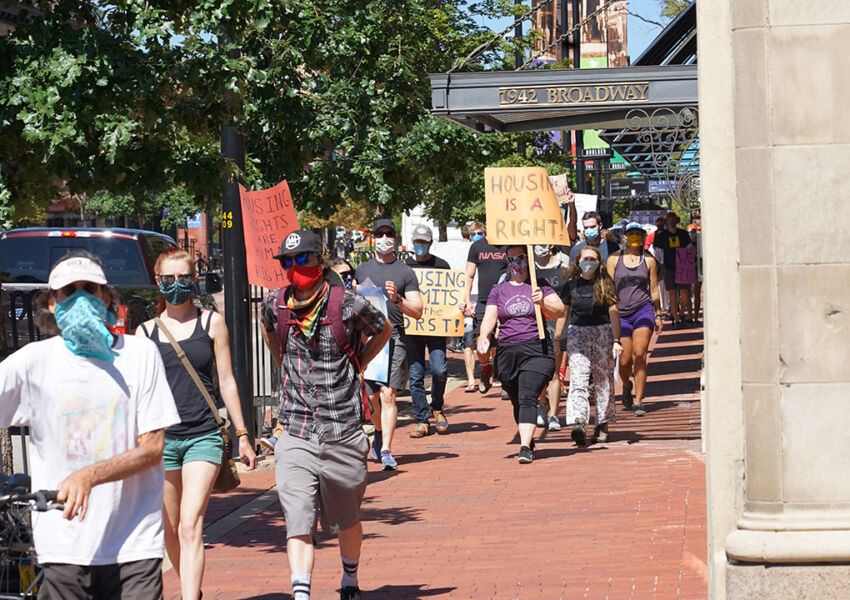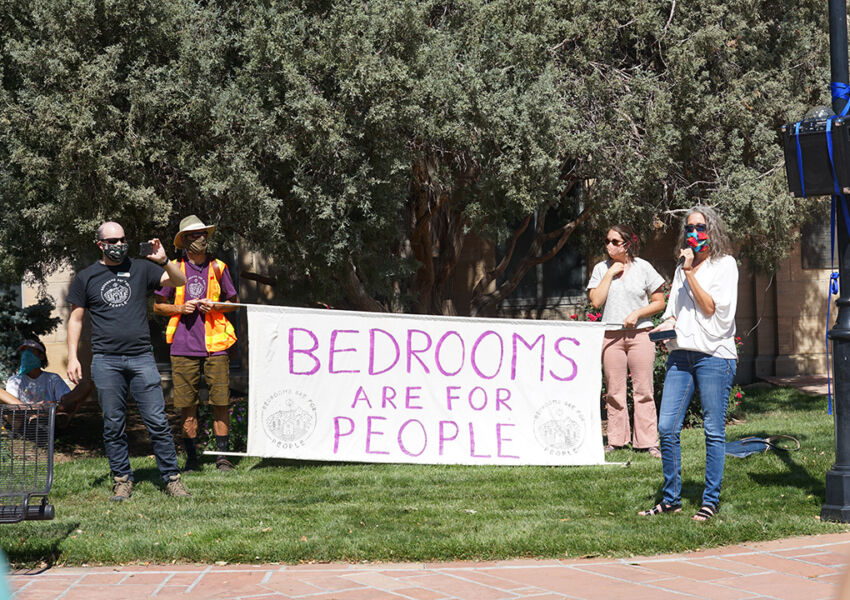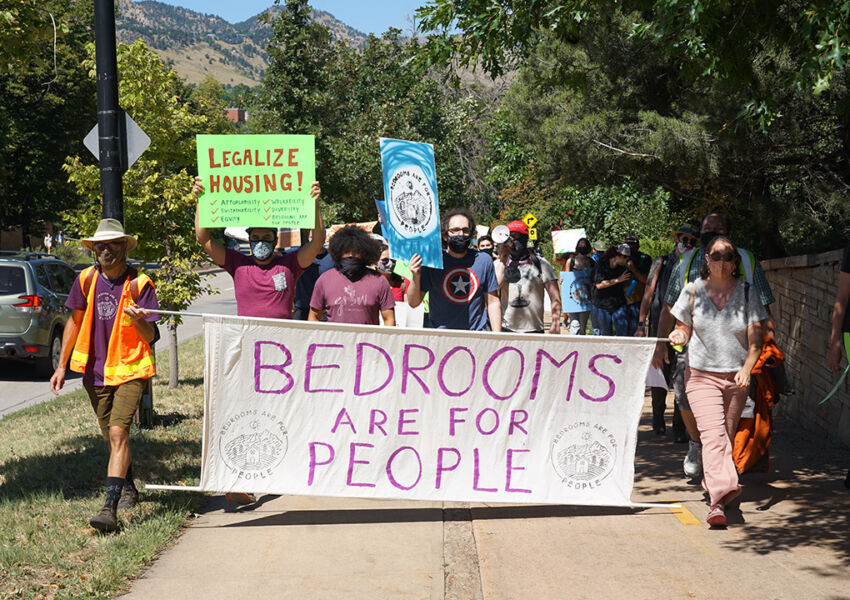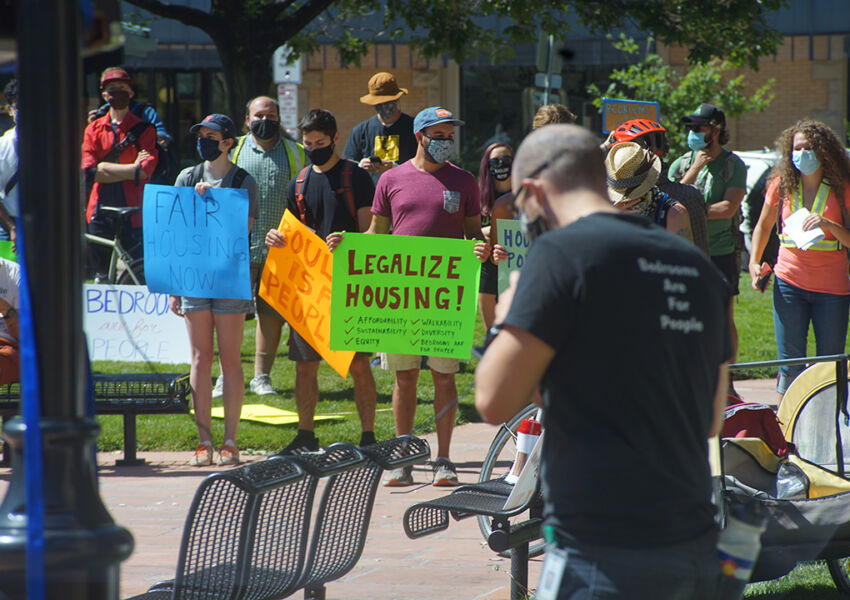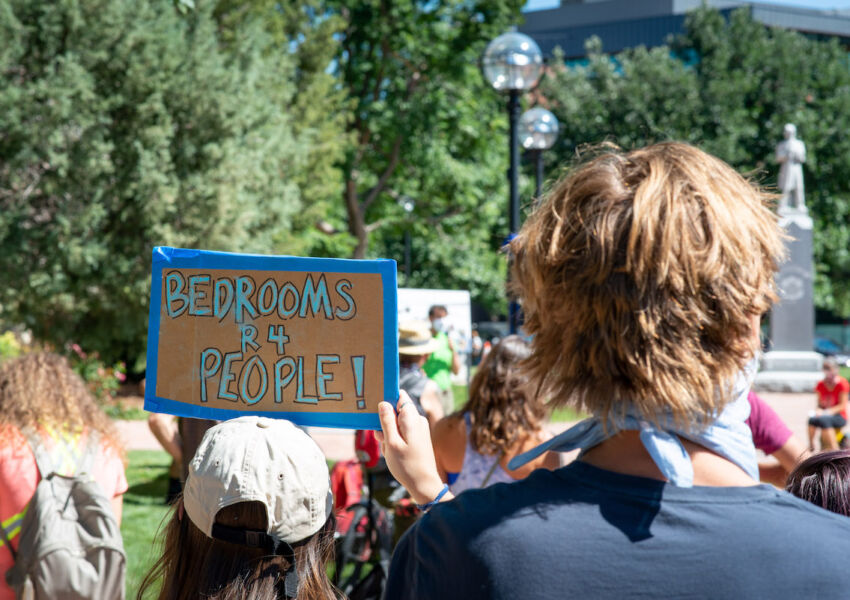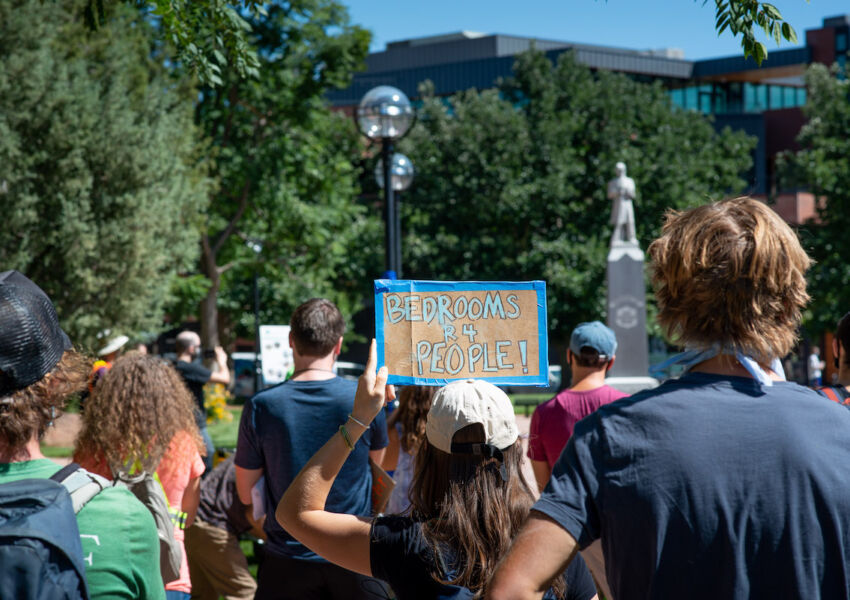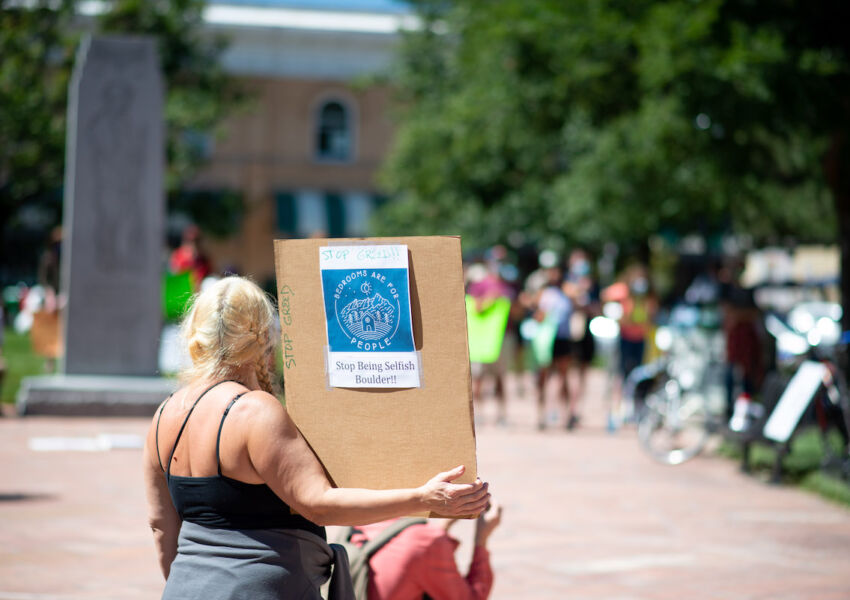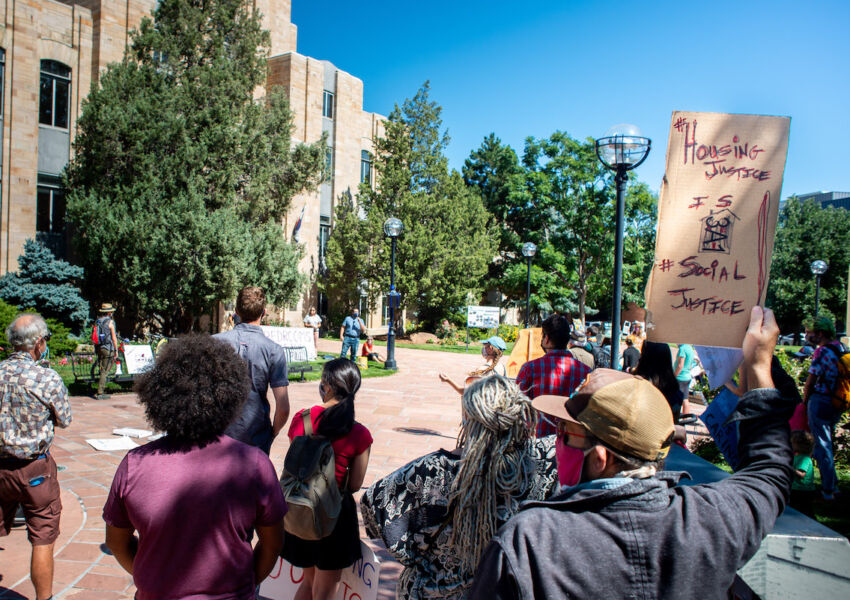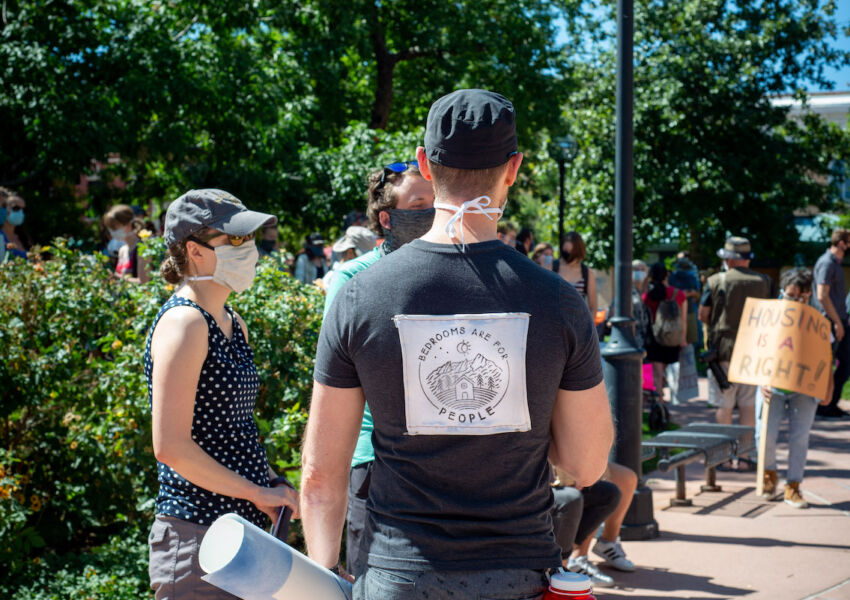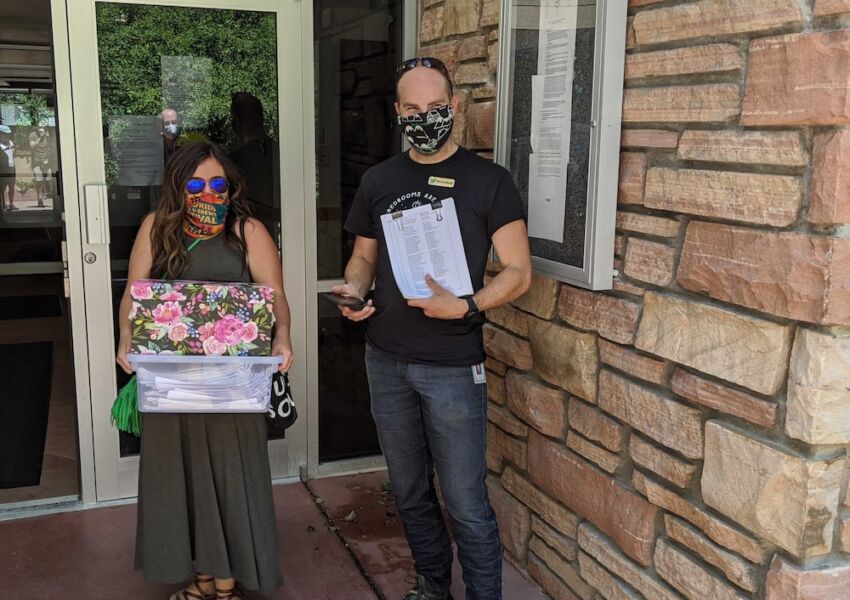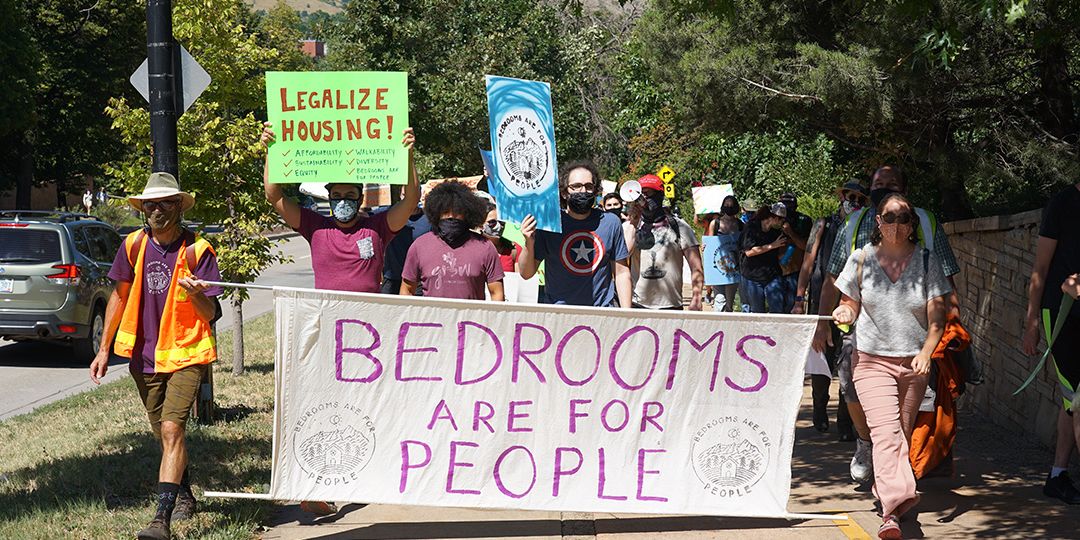
Boulder ballot initiative
‘Bedrooms Are for People’ challenges current restrictive housing laws
By Abby Schirmacher, staff writer
In fall of 2020, Bedrooms are for People organized a march in Downtown Boulder that was accompanied by a significant turnout from the community. Photo courtesy of Daniel Pope an Neal Bullock.
Listen to This Article
Imagine sharing a room with your friend for a variety of reasons. There’s a bunk bed set up in the bedroom and you both are comfortable with your living situation. But when your landlord visits, you take apart the bunk bed, stash it in the basement and have to claim that bedroom is an office. This is because the occupancy law in your city prohibits more than three unrelated people from living under the same roof.
This situation is a reality for residents and renters in Boulder, Colorado.
Boulder Ballot Initiative Bedrooms Are for People (BAFP) demands the city revise occupancy laws. Currently, exclusionary zoning laws forbid more than three unrelated residents from occupying a household, regardless of the size of the house.
BAFP’s solution is to allow one occupant per bedroom in any given household in Boulder. This grassroots movement is currently petitioning to add the initiative to the ballot in this year’s local election, while trying to gain support from the community in the process.
The origin of these laws are discriminatory in their nature. Since the early twentieth century, cities across the country have enacted exclusionary zoning ordinances with the intention to segregate communities. According to The Century Foundation, “in 1916, just eight U.S. cities had zoning ordinances; by 1936, that number had grown to 1,246.” Today, exclusionary zoning is still implemented in cities across the nation.
Boulder upholding exclusionary zoning laws destroys prospects for the community to welcome diversity and foster a space for residents of all races, ages, ethnicities and economic backgrounds to thrive.
According to BAFP, the occupancy laws in Boulder are restrictive for a variety of reasons. While it is less affordable for community members to pay rent based on the current occupancy laws, the code also restricts groups who want to live with unrelated residents. This includes citizens, especially those in their 20s and 30s, who are flocking to Boulder and would prefer to live in an untraditional household.
The financial burden associated with COVID-19 is another problem. Individuals may not have the economic resources to live in their own space. Altering the occupancy laws in Boulder would allow those in financial distress to live as they please at a more affordable price. The solution is likely additional roommates.
Boulder is home to a variety of different individuals. The community is considered a haven for young people who are passionate about the outdoors and all that Colorado has to offer. However, a restrictive housing law makes the city much less affordable and equitable for those seeking a space—or a bedroom—to call their own.
“A lot of people are really negatively affected by these laws, people are literally evicted from living four people in a four bedroom house, which is just so completely unjust,” said Eric Budd, BAFP campaign co-leader.
Though similar laws are in place in many cities across the country, the City of Boulder strictly enforces occupancy laws. This is a major issue within the student community especially, where it is more convenient and affordable for numerous unrelated individuals to live under the same roof. The city holds landlords accountable in enforcing the occupancy laws through routine inspections.
“The city will basically knock on your door, and they will do an inspection on the house – they will count beds in the house, they will count toothbrushes, they will make you prove that you are related to someone,” Budd said.
BAFP’s current action plan consists of collecting signatures from voters registered in the city of Boulder and encouraging those who are not to update their voter registration. In a city like Boulder that’s home to a large student population, this is rather difficult because most students are registered voters in their hometowns, not Boulder.
CU Boulder student and BAFP intern Julianne Ramsey often collects signatures at local establishments while helping people update their voter registration. From petitioning on campus recently, she discovered that “nine out of ten people weren’t registered to vote here, so it’s hard for us to make a difference in our community when we don’t actually have the means to have a voice.”
About 25% of the city’s population is university students. Ramsey has heard “horror stories about people who just decided to up and leave their house and they weren’t on the lease so they don’t have to pay the rent anymore.”
BAFP is working diligently to get the word out about the initiative to prepare for the local November election. In fall of 2020, BAFP organized a march in Downtown Boulder that was accompanied by a tremendous turnout from the community. While a majority of Boulder residents seem to support the campaign, the city refused to put the initiative on the 2020 election ballot. Despite these obstacles, they remain persistent.
According to Chelsea Castellano, BAFP campaign co-leader, the direct democracy process has been successful: “Essentially you have to collect a certain number of signatures, and then you can get your proposal on the ballot for the community to vote on.”
Castellano hopes that students can recognize that this is an opportunity to leave a legacy for future students.
“There are so many people who have had to deal with the negative implications of this law,” Castellano said. “This is an opportunity to say, ‘this stops here, this stops with us.’”


